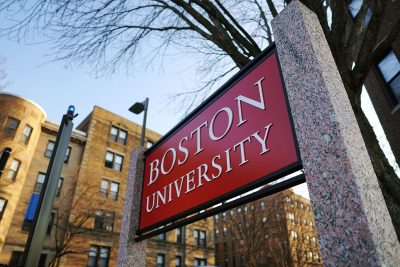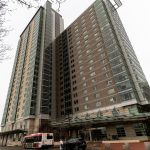Undergraduate students at Boston University voiced their opinions about the search for BU’s next president during a Presidential Search Committee meeting Oct. 24 on Zoom, following President Robert Brown’s announcement will step down at the end of the academic year.

Members of the Board of Trustees announced the creation of the Presidential Search Committee on Sept. 8 and asked undergraduates what would attract a potential president to BU, what challenges the new president should address and what qualifications the next president should have.
Toby Pannone, a sophomore in the College of Communication who attended the meeting, said he thinks BU’s next president should view BU as a community, not as a profitable business.
“I don’t want to see a business person,” Pannone said. “I don’t want to see somebody that has been a CEO, led a company or been on a board. I don’t want to see somebody like the board of trustees.”
Pannone said he hopes the next president will be more accessible to students and will frequently connect with the student body.
“I just would love to see somebody that can get down on a student’s level, that is not up in their ivory tower 24/7 and that does not become a joke because of how completely inaccessible they are and how little they speak for themselves,” Pannone said.
Pannone said he hopes BU’s next president will have a background in non-profit work.
“What I would love to see is somebody who has worked in nonprofits,” Pannone said. “If you have experience doing good, and having to give as much as you’re getting, that would be an incredible positive.”
Anne Joseph, a sophomore in the College of Arts and Sciences who attended the meeting, said BU’s next president should have previous experience with diversity, equity and inclusion.
“Being able to address problems, specifically seeing a perspective of highlighting equity and highlighting inclusion, is going to be essential for the next President to have,” Joseph said.
Joseph said BU needs to improve at listening to students, specifically students of color, citing the initiative to rename Myles Standish Hall as an example of how the next president can promote inclusivity on campus by listening to student voices.
“I would really like to see the next president take on this initiative and highlight indigenous voices and really prioritize them in the fight to make BU a more inclusive institution,” she said.
Joseph also said she agreed with students at the meeting that said BU administrators focus on business instead of community.
“I would say there’s a really big focus, as people were saying,… on BU being more of a business rather than a community that is supposed to serve the students,” she said. “For the next president of BU, I would really like to see that community focus, that student focus that makes us feel like we are important in this space.”
Joseph said she would like to see more transparency from the Presidential Search Committee as well as more student participation.
“It should be students who have a very influential say in who their next president is,” she said.
Daniel Perkins, a senior in the College of Fine Arts who attended the meeting, said he thinks the next president of BU should be an educator.
“I feel like someone who has a lot of skills and experience in communication is important,” Perkins said. “Communication is one of our greatest strengths at BU, but it’s also one of our greatest weaknesses in connecting students to resources.”
Perkins said student safety should also be a priority for BU’s next president, specifically highlighting how sexual assault is handled on campus.
“Student safety is always incredibly important,” Perkins said. “(BU’s president should make) sure that all of the procedures around Title IX are sufficiently robust and that people know how to access those resources.”
BU Spokesperson Colin Riley wrote in an email that BU will consider student input in the search for a new president.
“The presidential search is in its early stages and listening sessions are underway,” Riley wrote. “The committee is gathering input … to learn what they believe will attract outstanding candidates and what attributes they see as essential in a candidate for the presidency to meet the challenges the University faces in the next few years and beyond.”














